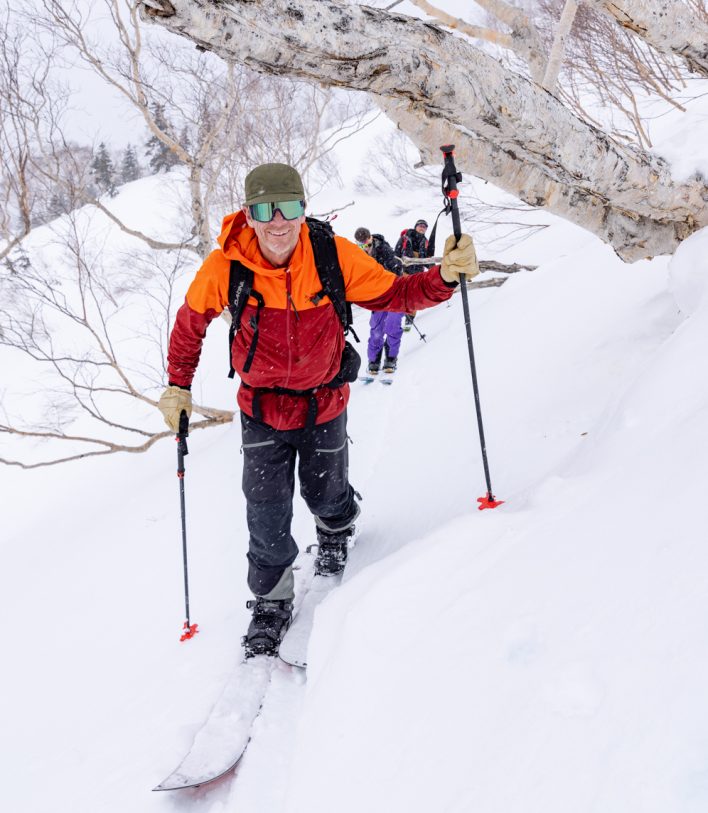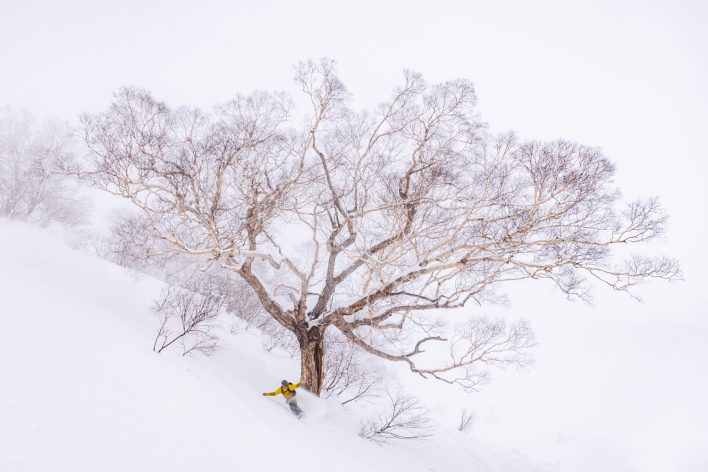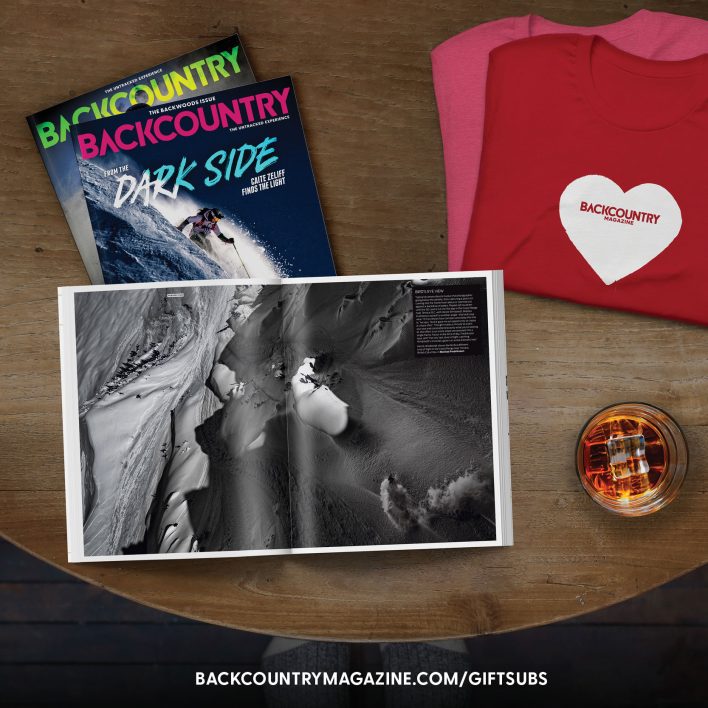According to PowderQuest owner David Owen, skiing isn’t the only reason to take an international ski trip.

Follow the Locals
As told by David Owen
When I travelled to the Japanese Alps last winter, I didn’t just want to chase deep snow on volcanos. I was there to learn about the local culture and get off the beaten skintracks of Hakuba and Niseko. Luckily, I was with David Owen, international travel expert and owner of guide service PowderQuest. When he started his company in 1998, Owen—who grew up in Virginia but is now based in South America with his family—catered to clients looking to get away from the crowds of popular destinations like Portillo and Valle Nevado. His formula was simple: pair a highly trained certified ski guide with a local expert who is engrained in the community; patronize locally owned restaurants and hotels; and keep the group size small. It’s worked. Most of his guides have stuck around for more than a decade and PowderQuest now has operations all over the world. —Betsy Manero
On the last day of university before leaving for summer break, a friend of mine walked up to me in the hallway and told me about this study abroad program in Costa Rica. She gave me the pamphlet. It was a study abroad, living with families in San Jose for five weeks. That changed my life—speaking Spanish in Costa Rica, the culture, the unknown of traveling and exploring a foreign culture. That triggered my passion to travel.
After university, a bunch of us travelled out West but we didn’t really know where we were going. We just caravanned cross country and ended up at a Super Bowl party at Vail. The guys that were throwing the party said, “I can get you a job tomorrow if you’re willing to cut your hair and take a piss test.” The next thing you know we had jobs in Vail, and that’s what triggered my passion for powder.
I promised I would go back to Costa Rica, learn to surf and start traveling from there. I ended up spending six months in Central America. Same thing. Just totally fell in love with traveling by myself, backpacking, meeting people from all around the world. And that ended up leading to a seven-month backpacking trip in South America. I ended up in Chile, chasing a girl that I’d met in Ecuador. It didn’t work out, but I decided to plant some roots there for a little while. I didn’t want to go back to the U.S. and one thing led to another. I saw an opportunity to start a ski guide company in 1998.
You couldn’t get a lot of information. It was hard to find local guides. It was easy to go to Portillo or Valle Nevado, maybe Las Leñas. But besides that, if you wanted to come down and ski multiple destinations, have a guide and be able to have transportation or legitimate information, it was hard. People depended on Lonely Planet guidebooks. There were a couple ski guidebooks that were in Spanish or just poorly written with bad information. I saw the opportunity to put that all together as a package, hire guides, transport people around to different ski areas and have a strong focus on local culture.
I wanted to have smaller groups, six to eight people maximum, Association of Canadian Mountain Guides ski guides, or some American ski guides, and then always having a local guide that speaks the language and works as an assistant tail guide. So, we have two guides running a program for six to eight people. One speaks the language, probably lives locally most of the year or was born there. You combine the safety and the mountain knowledge that the lead guide has with a local, and I think it’s one of the most unique programs out there.
Working with locals is important because they provide things that obviously no one else can. You show up to a ski resort and you don’t know where you’re going, but if you link up with a solid local, you’re going to find all the good terrain. It’s a little bit different in the backcountry. That’s why we bring our own backcountry guides that we trust and have the certifications.
I feel like we’re giving back and supporting smaller local operators and hotels, and by hiring a local guide that’s providing employment for him or her. They take us to restaurants that we wouldn’t have found on our own. We’re supporting the local community.

You can’t do anything about the weather. But we are able to take people to some pretty cool places. We’ve had a few down days in Japan, and we go to a sake farm or Samurai museums and castles and Buddhist temples. Everyone’s here for the skiing, but if you have a couple days of rain, it’s great to have a local person showing off their town.
Obviously, with information online, things are getting easier, but there’s a lot of misinformation out there as well. If you’re not with the guides that have the experience and people that have done it multiple times, it’s still challenging. You might not ski as good of snow or have that unique cultural experience.
The fact that you go on a ski trip in a foreign country, you arrive kind of tired and maybe nervous, you don’t know what to expect, and you can make an amazing lifetime friend in six or seven days, I think is really cool. We’ve had people link up and end up dating for a long time or become best friends. You’re all supporting each other. That creates a bond that you don’t get in other environments. We get a lot of solo travelers, which is pretty interesting. It’s probably 70 to 80%.
When I started traveling, I was 24 years old, and I just packed a backpack and went to South America with a Lonely Planet book that had suggestions and places to stay and eat. Half of them had gone out of business or moved. Nowadays, there’s over information on the internet. I would encourage people to do the important research, but don’t spend too much time on it, and especially looking at videos and photos.
I really think it’s special to show up to a place you’ve never been and see it for the very first time. If you watch some super HD video about skiing on Hokkaido, then you show up, it’s just not the same.
Do your research, but don’t overdo it and stress about it. The X factor of the unknown and showing up to a new country is pretty cool. Most people out there are good people, and they’re going to help you and treat you well if you’re open to striking up conversation or asking for help or information. That’s where you make the local connections. You make some friends, and they invite you over to their house.
I’ve always had those moments traveling solo around South America, and you go up to ask someone a question or for some help, and next thing you know, they’re inviting you over to their house for dinner.
I’ve been very lucky. My wife knows that what I’m doing with PowderQuest makes me happy. I love to travel. I love to be out in the mountains, meet the clients and come home obviously tired and super excited to see the family. The kids have grown up with that since they were born, and they miss me, but they have that independence away from their dad for a month or two at a time. When I met Carolina, I was running PowderQuest. She knew what she was signing up for. She works for the company now as well, and she totally supports it.
This piece was originally published in October 2025 in Issue #159. To read more, pick up your copy or subscribe.











Related posts: